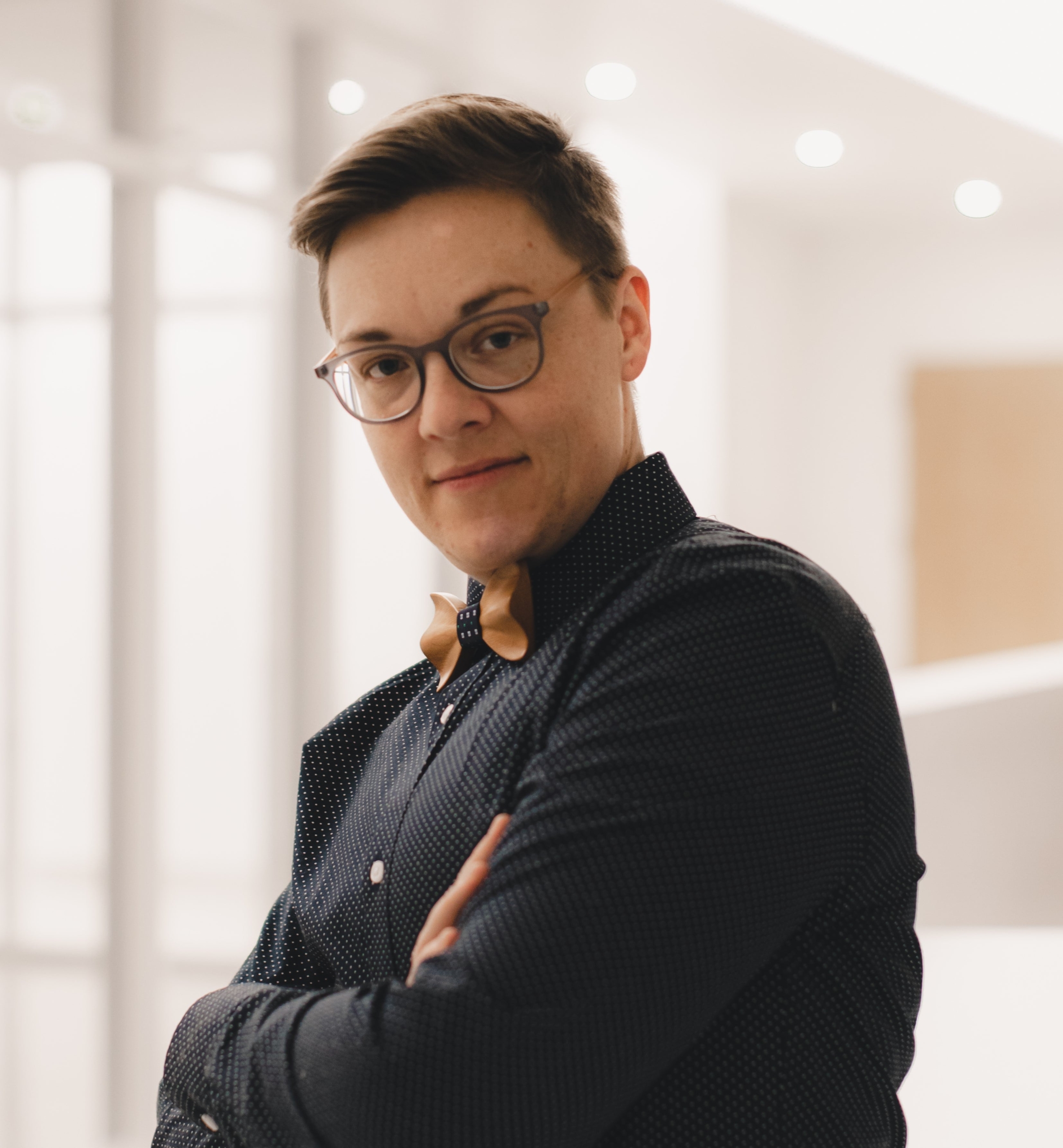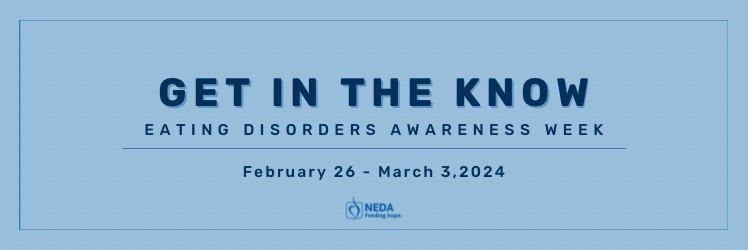This week, as we near the close of Weight Stigma Awareness Week, I have felt deeply reflective about my own eating disorder journey. When my TEDx Talk, “In a World That is Wrong About Us” was released earlier this summer, I had no idea how my story about gender, fatness, and recovery would be received. I was overwhelmed with fear about how others might undermine my experience, especially my strong claims about weight stigma. Throughout the countless re-writes of my talk, I found myself repeatedly trying to resist the pressure to sugar coat my story . . . to make my eating disorder more recognizable and acceptable, to make it more a story about being thin. But the truth that I finally named was that my story had always been about being fat, how the world received or rejected my body based on its size and gender, and the systemic barriers that impact fat nonbinary people.
Only years into my own eating disorder recovery was I able to name the fatphobia that had been a driving force in my eating disorder: fat was the wrong that I carried in the world. Since elementary school I had sat with some essential feeling of worthlessness. While that was likely a product of trauma, the world’s persistent fixation on my weight put my fat body at the center of all that pain for me.
Now that I live in a smaller body and have access to gender affirmative care, I am poised to articulate the myriad of invisible privileges I enjoy, which my fat brothers, sisters, and nonbinary siblings do not. When I go to my doctor, I enjoy the privilege of not being scolded about my weight or encouraged to adopt weight loss practices that have no basis in scientific evidence. Because the subject of weight doesn’t repeatedly surface in these appointments, I feel comfortable going to my doctor several times a year as we fine tune my regimen of hormone replacement medications. I have gone to the doctor, as a straight sized person with thin privilege, more times in the past year than in all of twenty-seven years as a fat person because of how much more respect I receive from my doctor and nurses now. I still have to put up with a fair amount of misgendering throughout these visits, and most of the year have been called by the wrong name by my entire medical team.
When I visited a surgeon this past summer for a consultation for top surgery, I was not told that I needed to lose weight prior to surgery. I was not subject to an arbitrary BMI cut off that blocked access to this life saving procedure. I did not have to engage in my inactive eating disorder behaviors in order to access the care I needed to live authentically as a nonbinary person. I didn’t have to be warned that my weight made the surgery riskier, or that I probably wouldn’t be happy with the final results because my post-surgical body would still be fat (apparently the majority of surgeons still believe all fat bodies are undesirable). In fact, when I asked specific questions about risks, my surgeon minimized all of those risks and ensured me that complications were very rare. I wondered to myself if I would have been reassured so generously had I still lived in a fat body.
When I shop, I only have a few brands of clothes (both women’s and men’s) that accurately fit my curvy body, but I am grateful to have even these options. It was once nearly impossible to find any clothes in my size, let alone clothes that accurately reflected my gender identity. A few gender inclusive clothing brands have popped up in recent years, but they are financially out of reach for most gender diverse people, and none include plus or extended size options.
I can say without any doubt that my life is easier because my body has remained smaller, and knowing this keeps me fiery and passionate about combating weight stigma. If you live in a thin body, I hope you can see the many privileges you enjoy, that fat people do not. Weight stigma harms us all through internalized fears about becoming fat, about being treated poorly if our body changes. Most of the trans and nonbinary clients I work with who have a restrictive eating disorders are paralyzed by the fear that if they gain weight the world will never honor their true gender. The images we see of “acceptable” transgender bodies are nearly always white, thin, able-bodied and hyper masculine or feminine. The images of “believable” androgyny are nearly always white, emaciated, hairless, and pre-pubescent. No wonder it feels so much safer to be trans or nonbinary and keep your eating disorder: because it is. When your physical safety depends on having an acceptable body, it takes true bravery to risk the loss and pain required to live authentically, at your natural body size and the gender you know yourself to be.
We all have a role to play in making it safer for fat gender diverse bodies to exist, and therefore to positively contribute to the recovery efforts of individuals. If you believe that all bodies are good bodies, then what actions can you take to make your community, your business, your spiritual organizations and nonprofits more inclusive of people of all genders and all sizes? How can you highlight the voices and needs of trans and nonbinary people who are disabled, fat, and non-white? How can you financially support the social justice work of fat trans leaders? If we want a world where all bodies are good bodies, then we are going to have to create it together.
Vaughn Darst, MS RD, is an activist, speaker, and HEAS dietitian based in Los Angeles, CA. His private practice, All Gender Nutrition, centers the lived experiences of queer and gender diverse clients of all ages as they work to make peace with food, their bodies, and their ongoing existance as gender outlaws.






